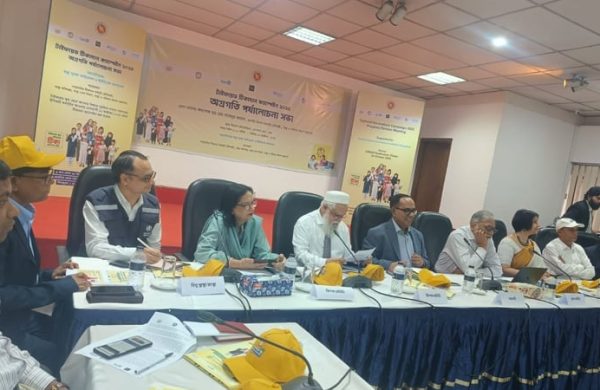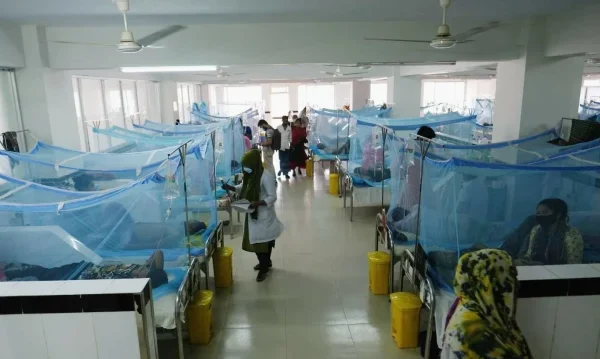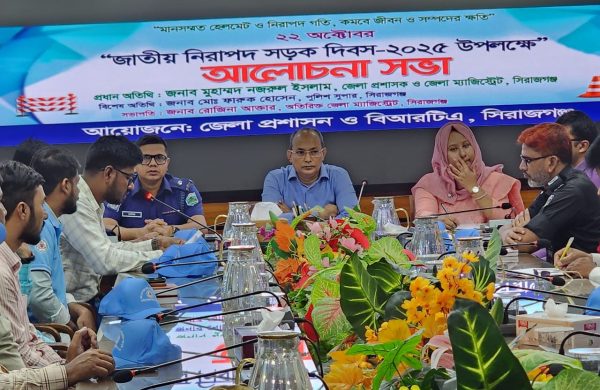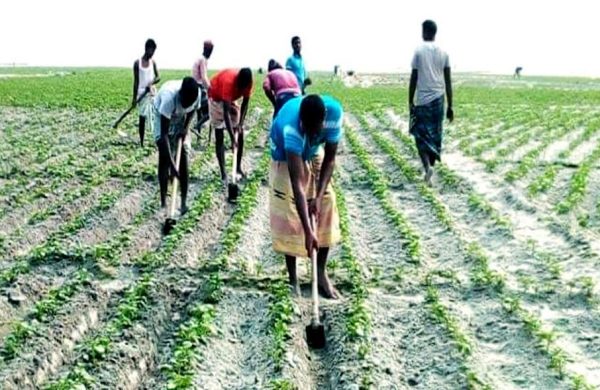October 25, 2025, 4:20 am
News Headline :
New terror dengue in Corona epidemic
- Update Time : Thursday, July 29, 2021
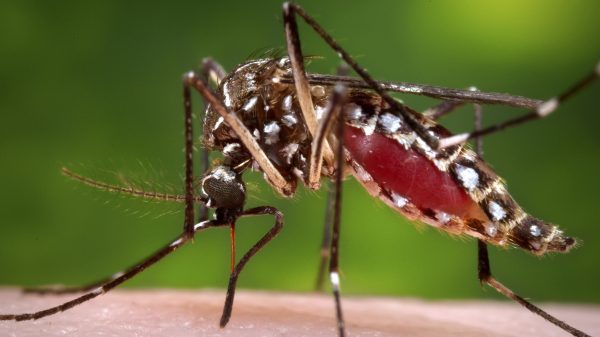
File Phto
Dr. Muhammad Mahtab Hossain Mazed
Dengue has become a new terror in the lives of people affected by the coronavirus epidemic. The number of people infected with the AIDS mosquito-borne virus has been on the rise for the past few days. The highest number of patients were admitted to the hospital in one day. Health information of the health department on Saturday
According to the dengue report, 104 people were admitted to the hospital with dengue in the last 24 hours on July 24, all of them from the capital. A total of 1,202 patients have been admitted to the hospital so far this month. A total of 1,574 people have been admitted to the hospital since January. Of these, 422 are currently admitted across the country. There are 419 people admitted in different government and private hospitals in Dhaka, and 3 in other departments. And the outbreak of dengue in Bangladesh in 2019 was more than any time in the past. For the first time that year, dengue has spread to 64 districts. At that time, the number of dengue cases exceeded one lakh. The Disease Control Branch of the Department of Health confirmed the death of 148 people due to this disease. However, more than 250 deaths have been reported from hospitals and doctors in different districts of the country, including Dhaka. The incidence of dengue was slightly lower in 2020. That year 1,405 people were admitted to the hospital. Twelve suspected dengue deaths were reported to the IEDCR. The Department of Health confirmed the deaths of 7 people due to dengue. The highest number of deaths due to dengue before 2019 was in 2000, 93 people. In the same year, the disease took its first terrible shape, affecting 5,551 people. After that, the number of dengue fever cases and deaths decreased continuously. From 2003 to 2015, the number of victims was less than four thousand, the number of deaths was also very low.
In 2016, the number of dengue cases dropped to six thousand, but the following year it decreased. Then again the dengue outbreak increased in 2018 That year the outbreak increased and the number of dengue cases gave birth to new records In the year 10 thousand 148 people were infected and 26 people died. From 2000 to 2018, a total of 50,148 people were treated for dengue fever. The next year, in the last 19 years, the total number of dengue patients exceeded the number of dengue cases in August alone, 52,636 people were identified. Dengue symptoms: -* Dengue fever Dengue-virus infection can range from asymptomatic to a variety of symptoms, even death. Commonly seen dengue fever, often called classical dengue, is an acute type of fever that, in addition to sudden onset of fever, is accompanied by pain in the front of the head, pain in the eyes, nausea, vomiting, and red rash. Inflammation of the eyes and severe back pain often occur. These symptoms last for 5-7 days and the patient may feel tired for a few more days and then recover.
Most infections, especially in children under 15, can be completely asymptomatic or minimally invasive. Skin rashes occur in about 50% of cases, first on the hands, feet and then on the neck. Bleeding of the face, throat or chest during fever. Bleeding in the eyes of a dengue patient.* Hemorrhagic dengue fever is a disease of children mainly in Southeast Asia. Bleeding dengue is a deadly form of dengue. The main symptoms are the same for everyone, regardless of age. At the onset of dengue fever, the body temperature suddenly rises (380-400 C) and lasts for 2 to 7 days. Bleeding or dengue shock usually occurs within 3 to 7 days. It includes headache, persistent fever, weakness and severe pain in joints and muscles. Although the disease starts mildly with upper respiratory tract infections, there is a sudden onset of shock and bleeding inside the skin and bleeding through the ears. The number of nuclei in the blood continues to decrease and there is an indication of impending shock from the increasing hematopoietic tendency of the blood. Bleeding dengue patients need good care and monitoring, as the above changes can happen very quickly and the patient’s condition can become critical.* Dengue-Shock Syndrome This is another type of hemorrhagic dengue, with narrowed blood pressure, low blood pressure or impaired blood flow with obvious shock. The liver can be touched from outside the body and becomes soft and Enzymes usually cause abnormalities, but rarely jaundice. Other symptoms include persistent abdominal pain, occasional vomiting, restlessness or fatigue, and sudden onset of fever with sweating, chills, and complete loss of body. Severe infections were rare before 1980. But by 1996. hemorrhagic dengue was a distinct disease in tropical and sub-tropical countries, including Bangladesh, causing large and small epidemics. According to the World Health Organization, dengue is on the rise worldwide. Of the nearly 5 million infected patients each year, at least 500,000 are hospitalized with hemorrhagic dengue, a large proportion of whom are children and about five percent die. The resurgence of global dengue and the origin of hemorrhagic dengue are rooted in unprecedented population growth, unplanned and uncontrolled urbanization, increased air travel, lack of mosquito control and deteriorating public health structures over the past 30 years.Why dengue after winter?
Since the beginning of this century, when it rains every year after winter in our country, mosquito infestation increases. Mosquito-borne disease dengue is on the rise. So during this corona period, there is no stopping rain, there is no stopping mosquito breeding. Outbreaks of dengue are very high in big cities including Dhaka. However, dengue patients are being found all over the country. So far, the highest number of dengue patients has been found last year. More died. Which mosquito spreads dengue? Mosquito infestation throughout the year including Dhaka. But the dengue outbreak does not last all year round. This is because the Aedes mosquitoes responsible for spreading dengue grow in clean water. And this clean water is available right after the rain. This Aedes mosquito lays its eggs in any place where rain water has accumulated.What is the way to survive from dengue?Prevention is better than cure. Only good is said but less is said. This is the best way to survive. Whoever has dengue in this coronary state of corona will understand what the situation will be. However If he doesn’t think so, his head shouldn’t be right. So there is no alternative to stop mosquito breeding and eradicate mosquitoes to survive dengue. Care should be taken to avoid any situation where water may accumulate. All types of coconut shells, car tires, broken bottles, discarded flower tubs, etc. must be removed on your own initiative. The government alone cannot find or remove the broken bottles, glasses, coconut shells, buckets, tires of 160 million people. In order to survive, one has to participate in these on one’s own initiative. Remember, mosquitoes will attack you next to your house.
Home Remedies for Dengue Prevention and Remedy: -Some home remedies can be used for dengue prevention and treatment! * Honey: – Daily consumption improves the immune system and increases immunity.
* Kalijira oil: – Kalijira or Kalijira oil is said to be the medicine of all diseases! However, it is not right to eat more than 3 teaspoons per day! If you have never eaten before, you can adjust the body with half a spoon! Before taking it to any patient or pregnant woman
Take advice
* Neem oil: – To avoid mosquito infestation at home, it can be sprayed by mixing neem oil with water.* Coconut oil: – Coconut oil does not rub against mosquitoes.
* Turmeric powder: – Turmeric contains protein, vitamins, mineral salts, phosphorus, calcium, iron etc. So playing turmeric increases the body’s resistance to disease. It is possible to stay healthy by mixing turmeric powder or juice with milk or water every day. Turmeric is usually used in large quantities in various dishes! It can be consumed directly, but certainly not excessive! Patients, drug users and pregnant women must consult a doctor before taking it.* Milk, banana, eggs – these are called balanced food! Daily consumption ensures good health and increases immunity! Many people are allergic to these foods or milk is a forbidden food for various diseases (such as kidney disease, lactose intolerance, etc.).* Papaya and papaya leaves: – Papaya is able to increase the amount of blood platelets very quickly. A study by the Asian Institute of Science and Technology in Malaysia found that papaya leaf juice increases rapidly when the amount of platelets in the blood decreases due to dengue fever. Blood When the amount of platelets is low, drink papaya leaf juice or ripe papaya juice every day.
* Dragon fruit: -Dragon fruit has a lot of antioxidants! It helps to increase white blood cells (WBC).
* Sweet pumpkin and pumpkin seeds: -Sweet pumpkin is very effective in making blood platelets. Sweet pumpkins also contain vitamin A which helps in making platelets. So eating sweet pumpkin and its seeds regularly to increase the number of blood platelets is beneficial.
* Lemon: -Lemon juice contains a lot of vitamin C. Vitamin C helps increase platelets in the blood. Vitamin C also boosts the body’s immune system. This also protects the platelets from being destroyed.
* Desi fish: -Desi different fish (such as: koi, shing, magur, shoal, bain, small fish, five-mixed fish, etc.) plays a role in increasing blood in the body.
★ Things to do: – Patients suffering from dengue fever should be wiped with cold water to prevent high temperature. If the body feels cold, you have to give food saline. Patients with hemorrhagic dengue fever should be taken to hospital. He should be kept at full rest and given more water to drink.
Homeopathy: –
The treatment of dengue fever is possible by the help of an experienced physician who treats any complex and difficult disease including dengue according to the homeopathic guidelines prescribed by Dr. Hahnemann.
Homeopathy: –
Experienced homeopaths should be aware of the symptoms of dengue fever, such as aconite, belladonna, bryonia, rastox, eupeterium perf, arsenic albumin, carbovase, epicac, sulfur, and many more. Take advice.
Author,
Editor and publisher, Dainik Shastho tathya
Health Adviser. Central Committee of Human Rights Review Society
Co-Chairman. Bangladesh Patient Welfare Society
Mobile.01822869389
More News Of This Category



